Portal of Healing
Crossing the Bridge Together
Installation View, "Portal of Healing"
Acrylic, chalk, and pencil on canvas
250 x 70 in. each part, in 4 parts
Video by: L Diop
Crossing one of the most remembered years in history, transitioning from 2020 to 2021, Rachel Gonzales, Filipina-American artist, created the site-specific installation, “Portal of Healing” in the Fondren Library, to hold space for collective grief, despair, avoidance, and the reclamation of joy, resilience, and healing in the present moment.
In collaboration with the Houston Asian American Archive with excerpts from Asian American narratives and poetry of Wei-Huan Chen and Jenah Maravilla, Gonzales created this work from the end of 2020 to the first week of 2021, to collect and manifest the human experiences. It is an emotional landscape that serves as a bridge from one end of the gallery to another, enveloping the space for contemplation, while figuratively connecting past, present, and future through the storytelling of Asian Americans. Paying homage to ancestral wisdom in her Filipino heritage, Gonzales included a phrase from her late father, “We will cross the bridge together,” and responded in reflection, “Sometimes the ocean is a bridge.” Bringing together their stories of migration from another country across the ocean and sharing them in this container, “Portal of Healing” serves as a sanctuary for remembrance, prayer, and meditation.
Prompting the visitors to disorient themselves with an alternated sense of horizon, and draws them in to trace the words of healing, calligraphically inscribed words levitate, echo, and resonate with the gestural brushstrokes and the composition of the entire installation, melded with the artist’s visual artistry. Voices spoken through the Archive— a “rock bottom,” “leveled me to the ground…” from Chen’s poem, recited like a mantra, echoing with the other voices, are choreographed lyrically across the abstract components of the work. With acrylic, chalk, and pencil on unprimed canvases, paired using minimal color, Gonzales’s oversized gestural mark-making intuitively commends to the classical Asian landscape scrolls and calligraphic strokes, with the freehand brushwork giving in to layers of black and white, achieved with the use of one color. By claiming the “female gaze” in her own terms, Gonzales contests tradition with intuition and empathy, challenging us to see beyond the physical realm.
We are especially thankful for Wei-Huan Chen and Jenah Maravilla, who graciously gifted their poetry in an open call in November 2020, and other writers in the Houston Asian American community.
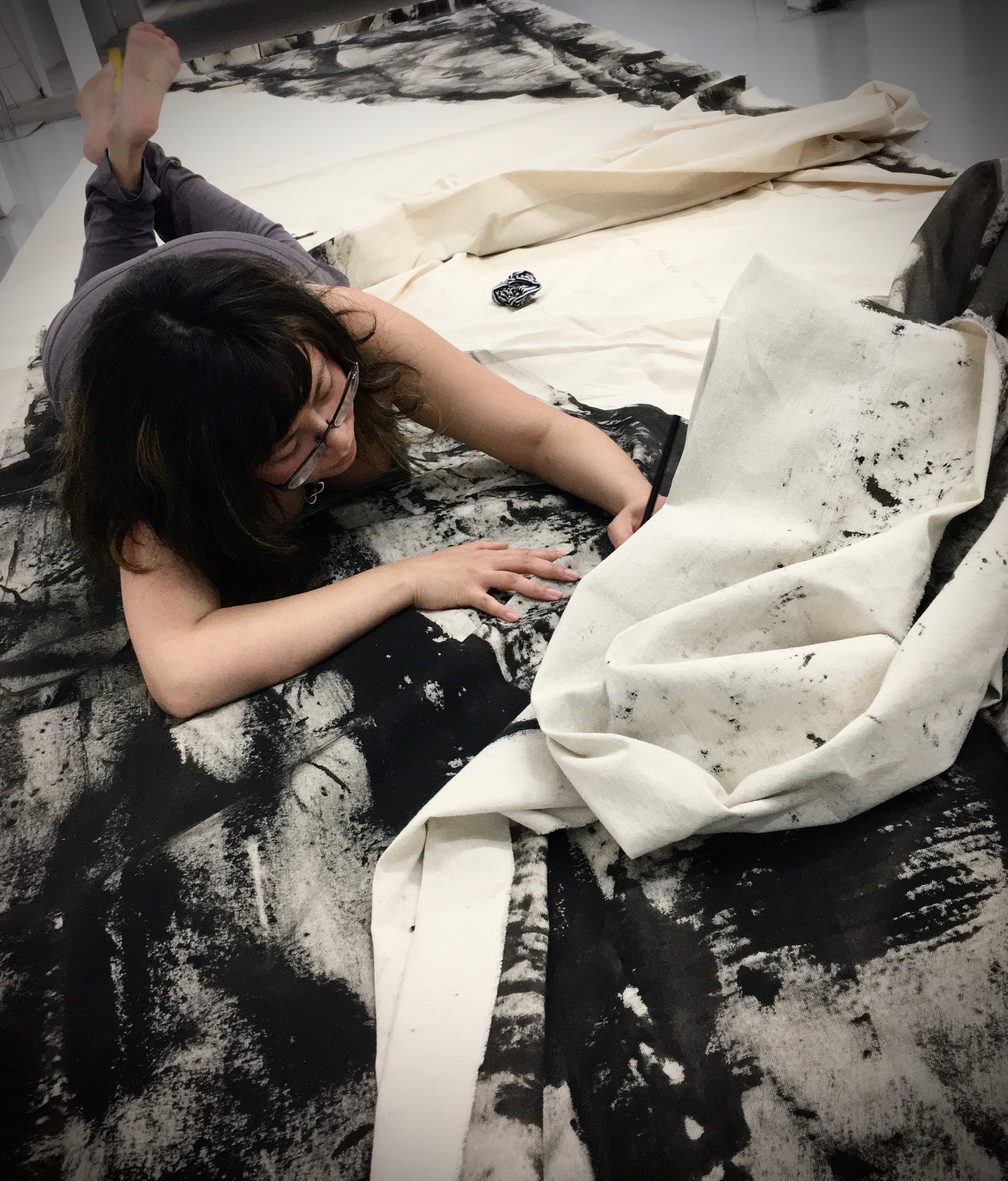
Rachel Gonzales (b. 1986, Massachusetts) is a Filipina-American figurative and abstract contemporary visual artist educated and experienced in both architecture and fine art. She graduated from Rice University with a Bachelor's in Architecture in 2010. Informed by her architectural background in designing physical spaces, her paintings also serve as containers or portals for the human experience and focus on reclaiming “the female gaze” as a more profound way to see beyond the form. Gonzales works mostly with acrylic on canvas, watercolor on paper, and ink or chalk on paper. Working in both abstract and figurative spaces, she pays homage to the abstract contemporary reminiscent of Cy Twombly's "romantic symbolism," with intentional mark-making and fused words with drips of color that fade like a fleeting memory. Her figurative works capture the essence of a person and the subject instilled with a gaze of their own.
Follow the artist by:
INSTAGRAM: @rachelgonzalesart
WEBSITE: www.rachelgonzales.com
The exhibition is organized by Ann Shi, Associate Curator at Houston Asian American Archive, and funded by the Chao Center for Asian Studies. Special thanks to Amanda Focke, Head of Special Collections, Fondren Library; and to Helen Pu, Sonia He, Ashley Tsang, and Emily Ma, Rice student interns of HAAA.
Public Program:
1. Artist talk with Rachel Gonzales
2. "Fondren After Dark | Embodying Healing," dance by Rea Sampilo in response to "Portal of Healing"
Social Media: @RiceHAAA, #HoustonAsianAmericanArchive, #HealwithHAAA.
For more information, please see the press release and the visitor's guide and the inscription texts that were used collaboratively in the installation.
Installation Images
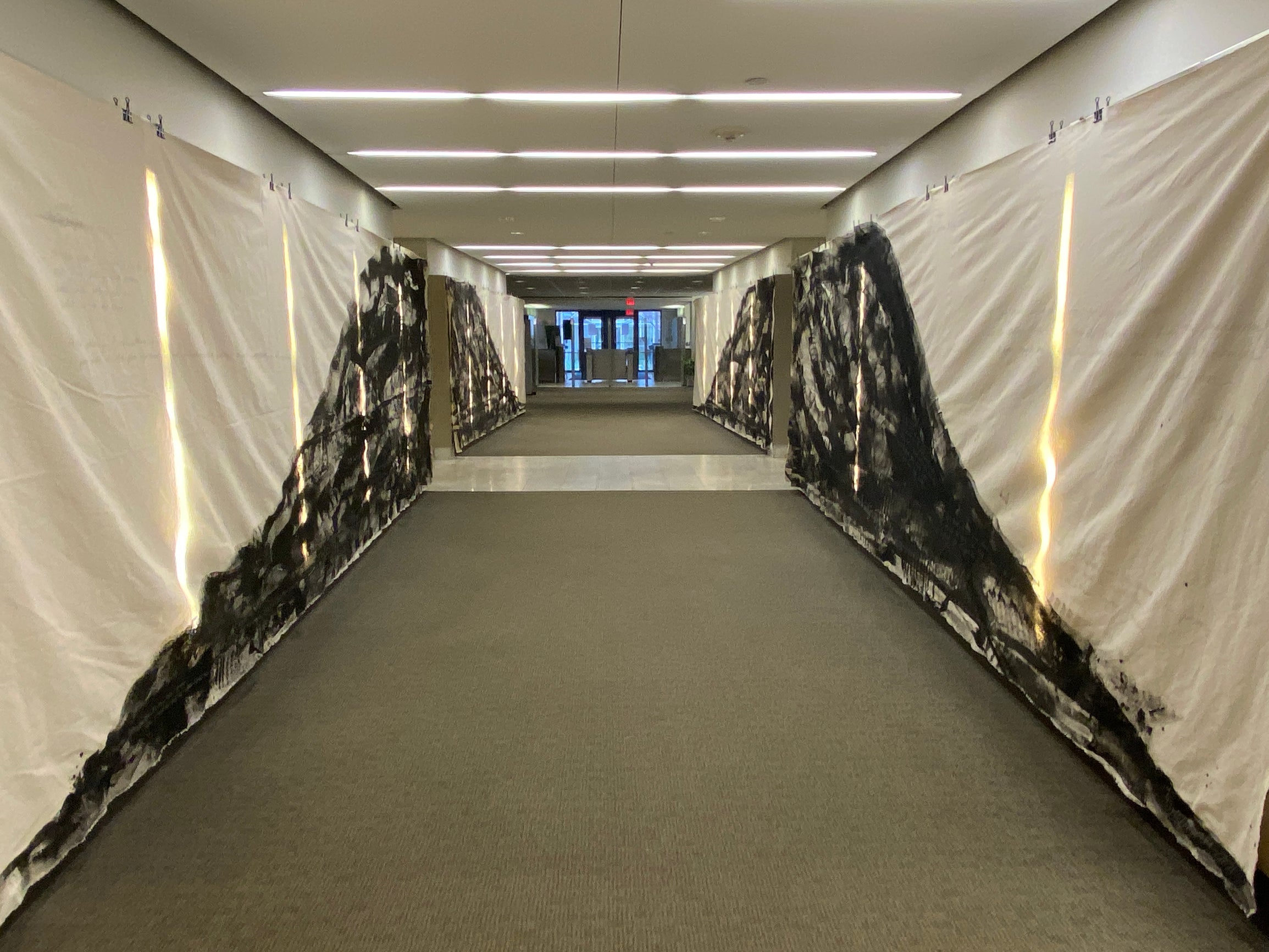
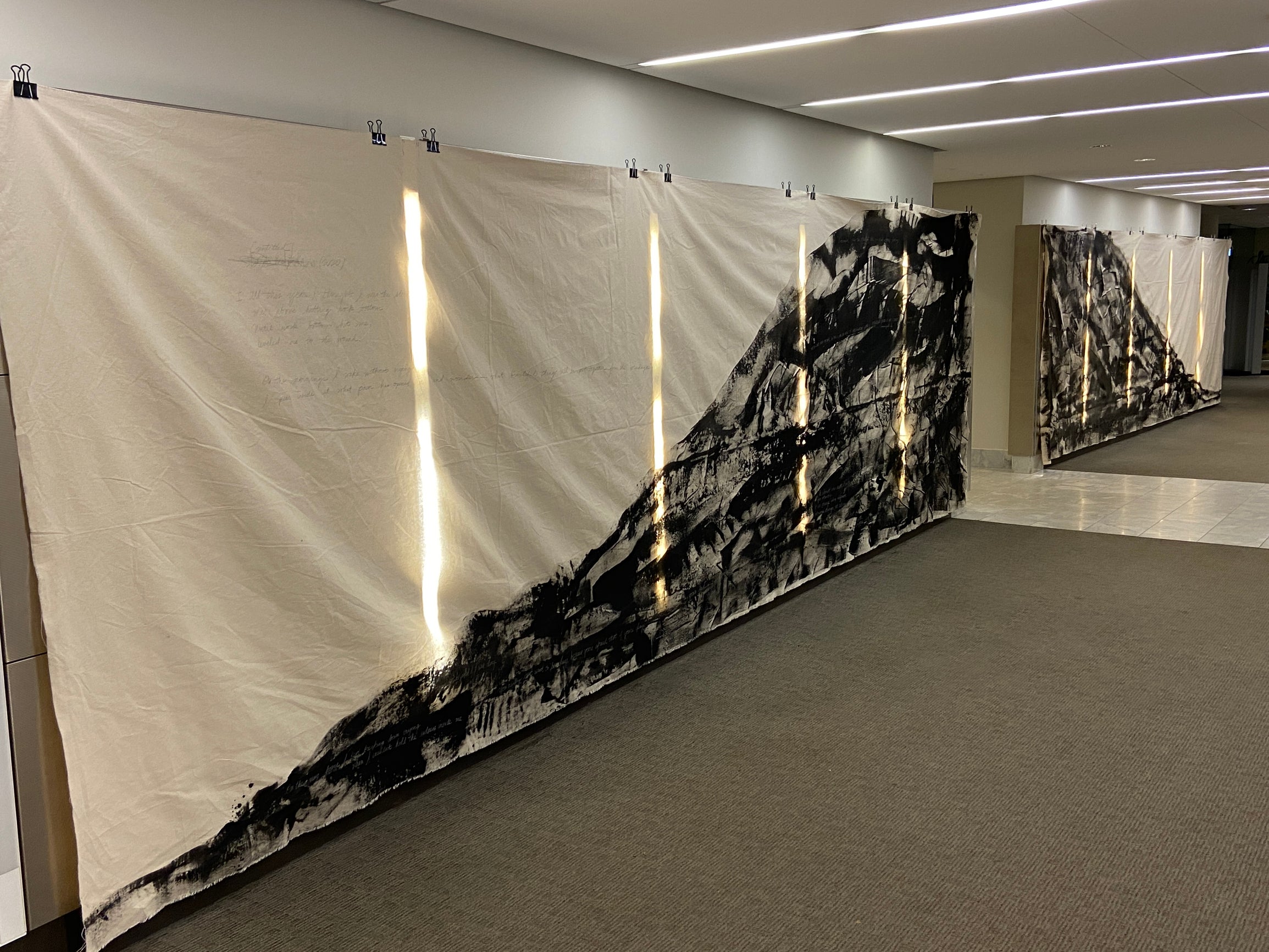
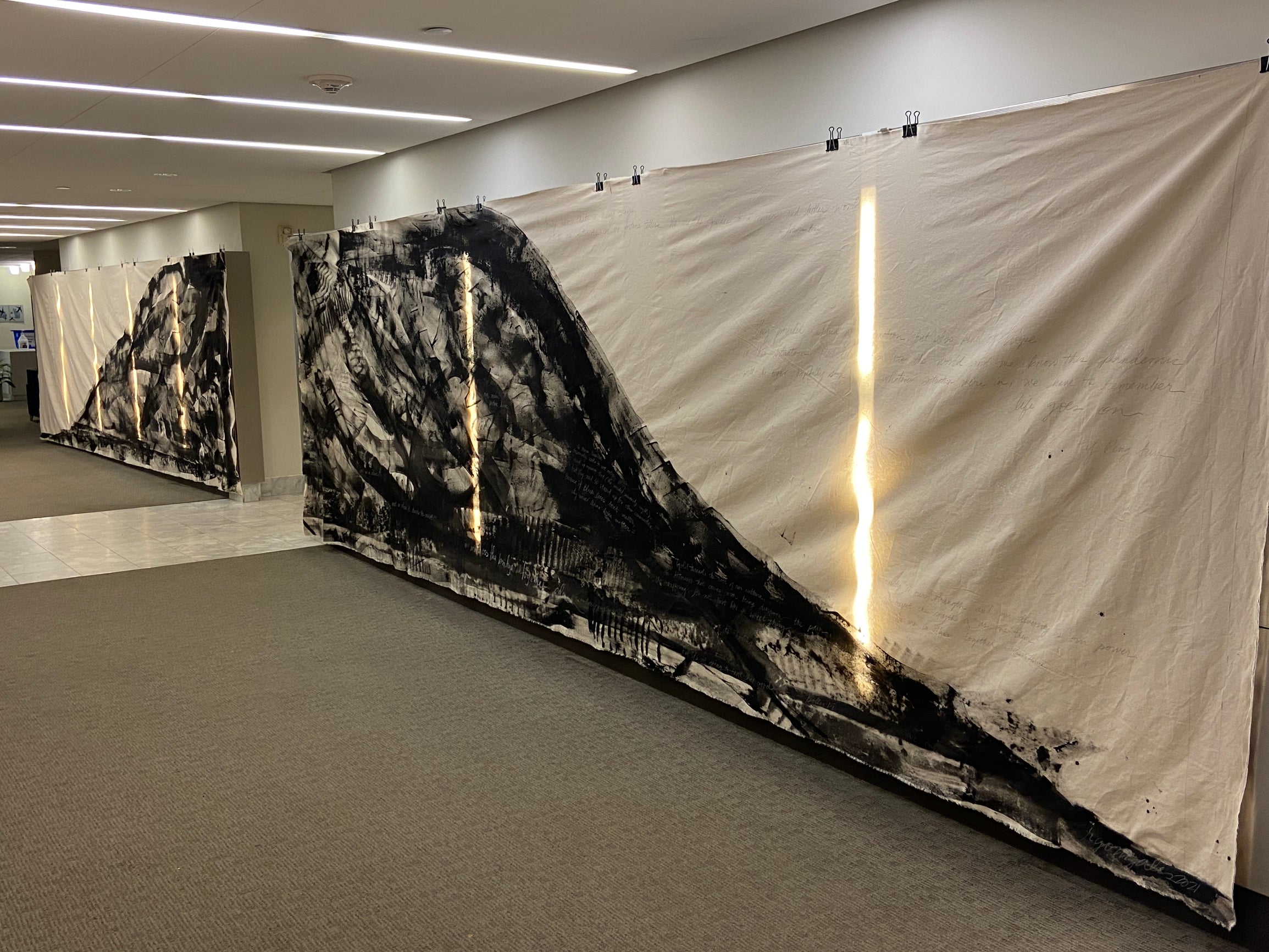
Details
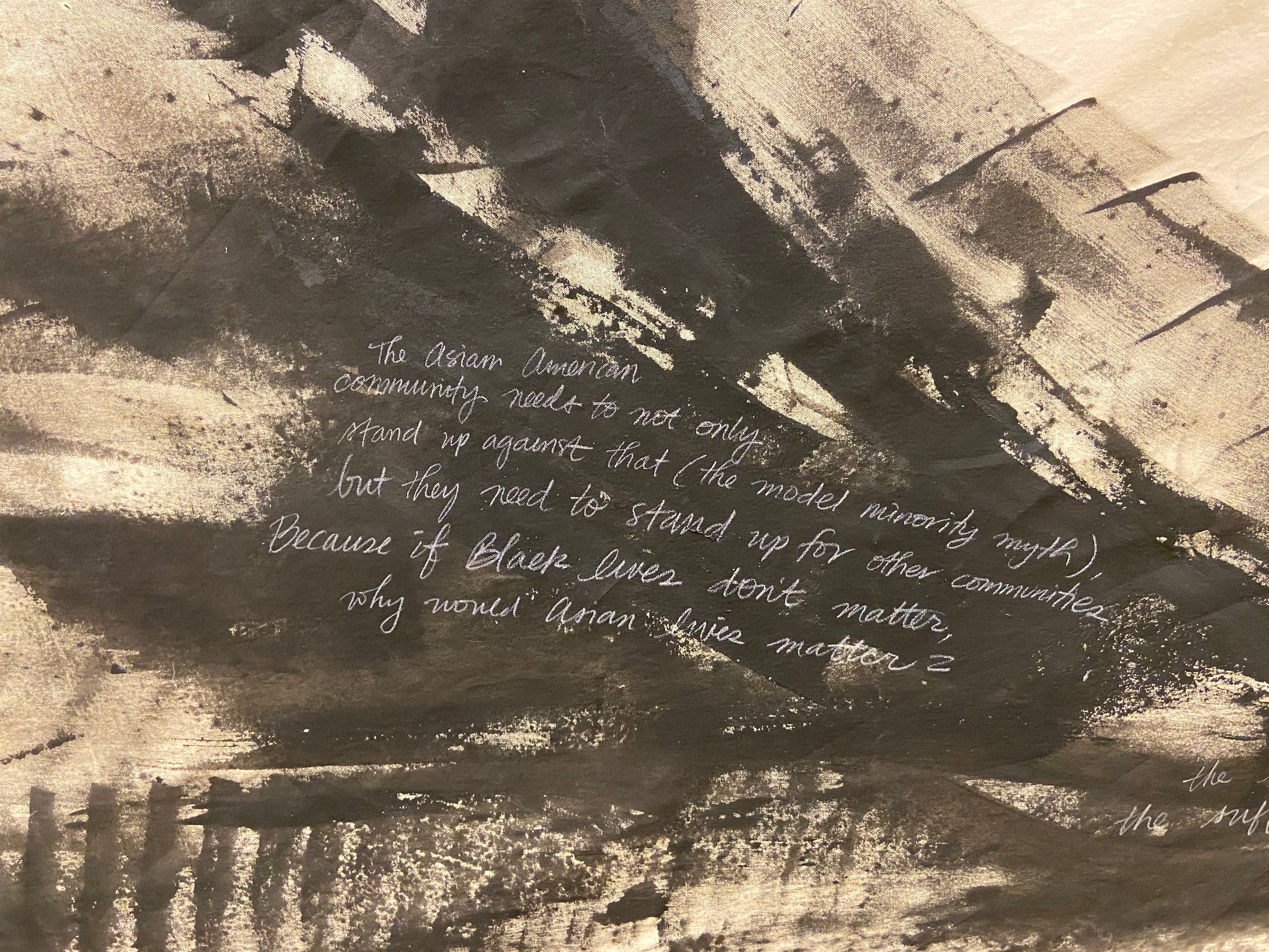
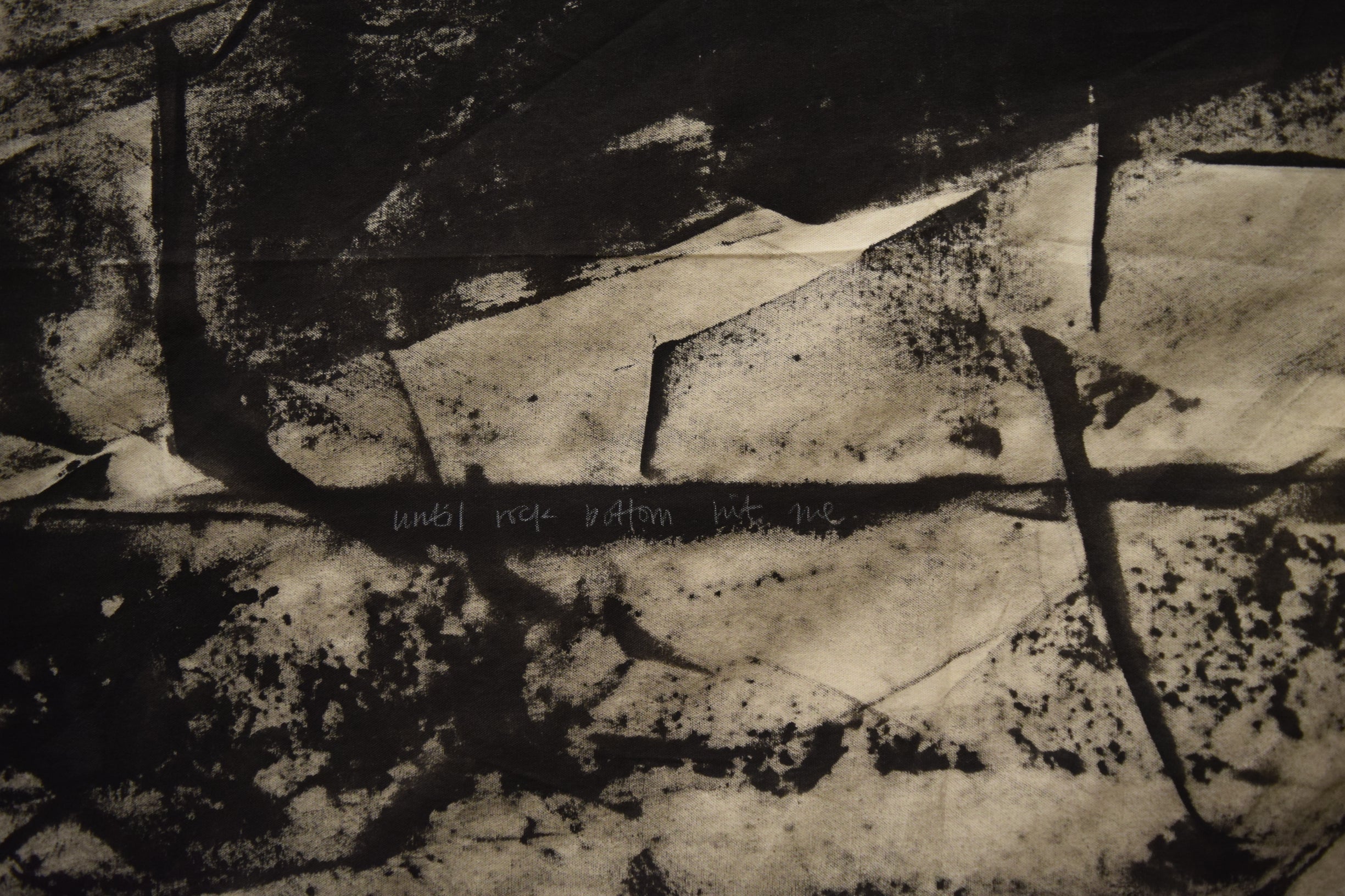
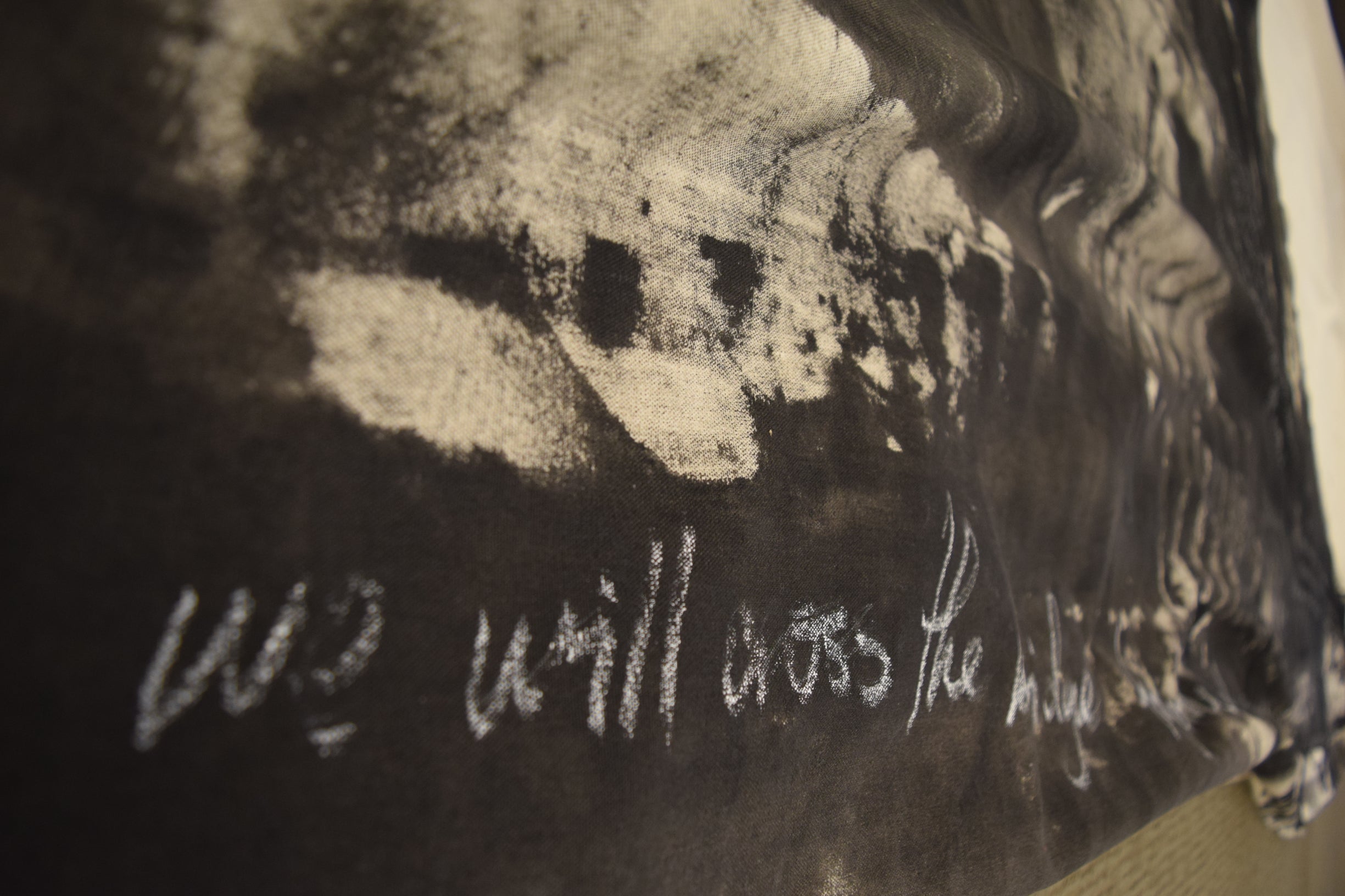
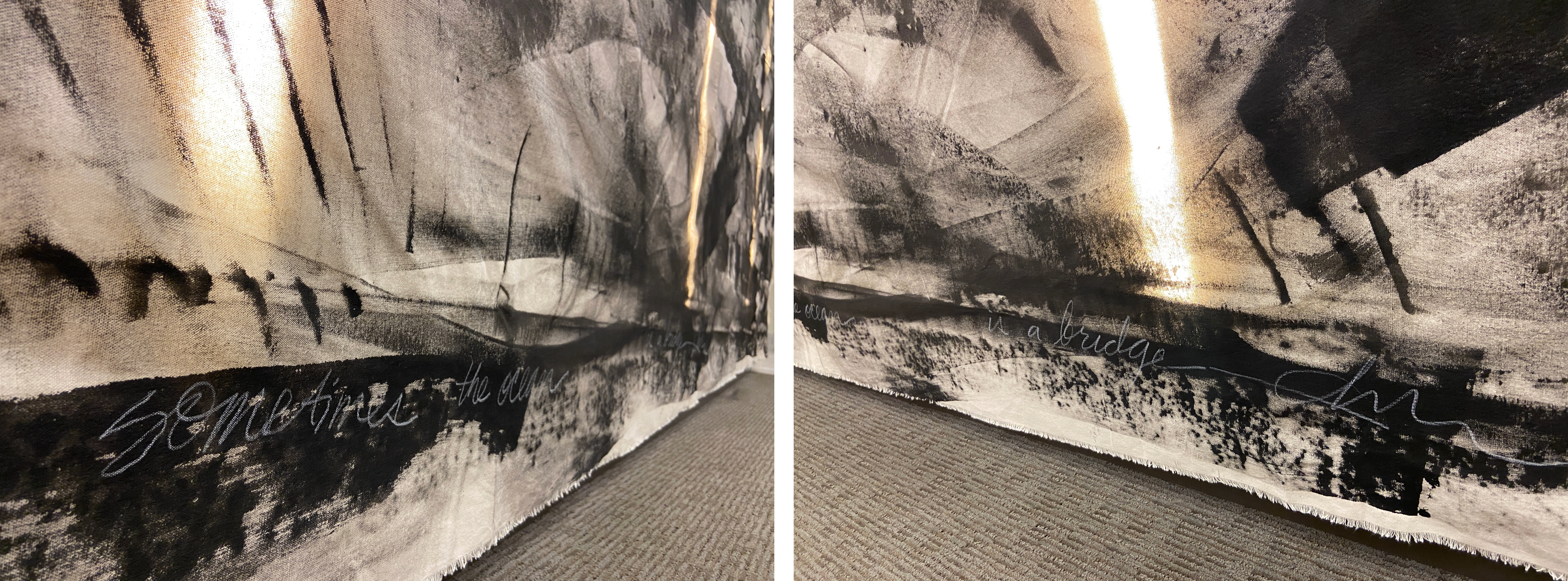
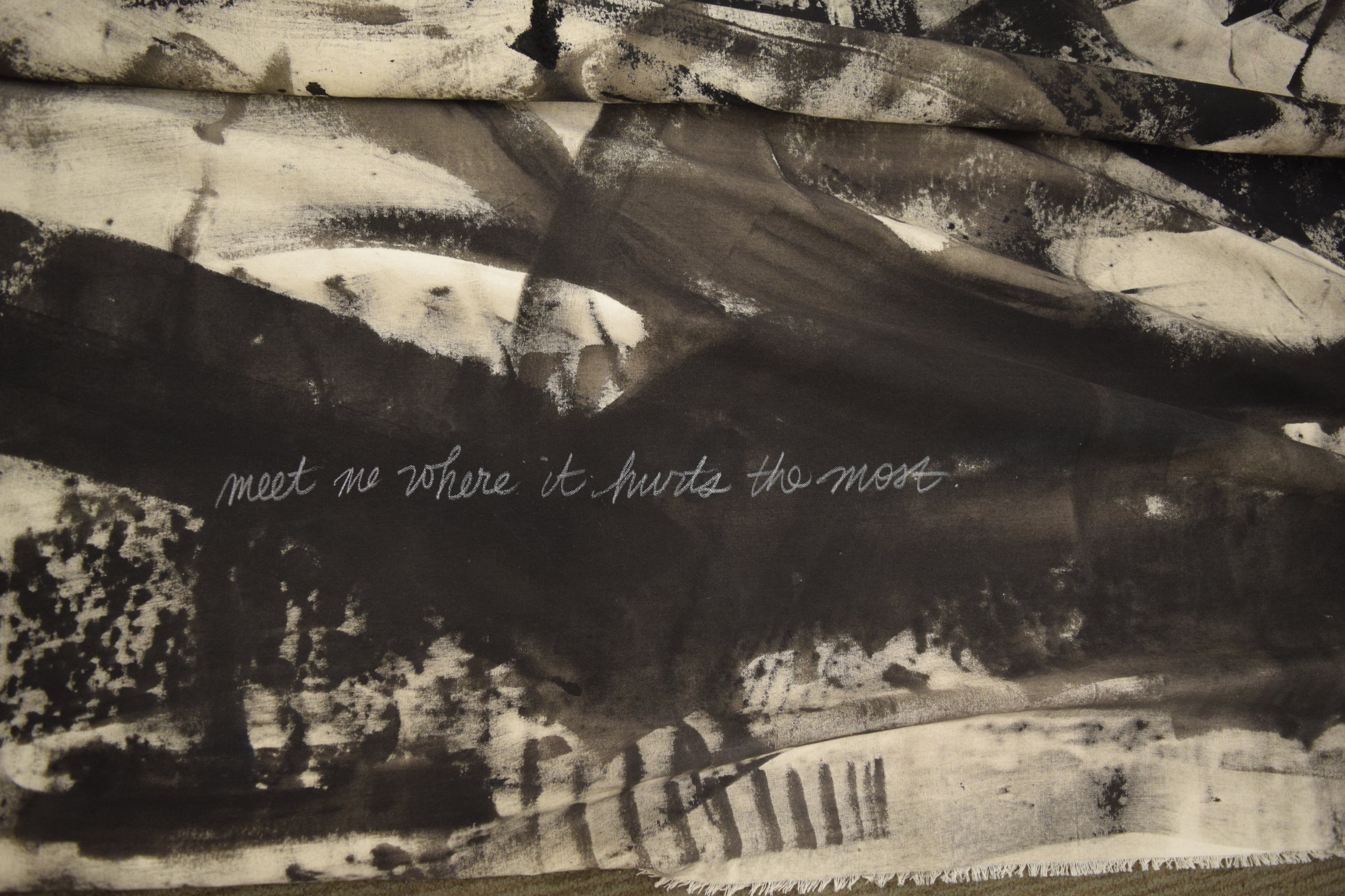
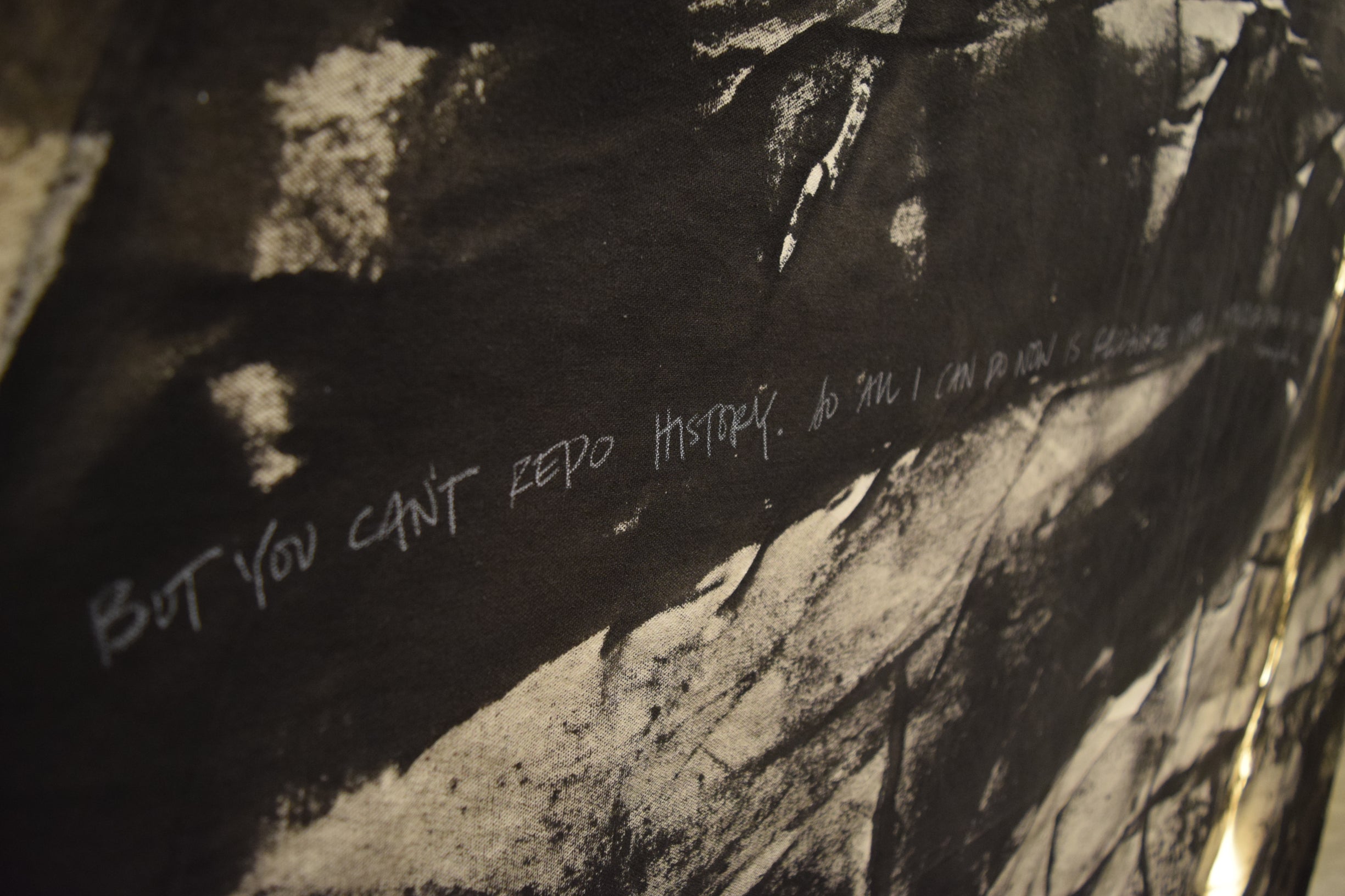
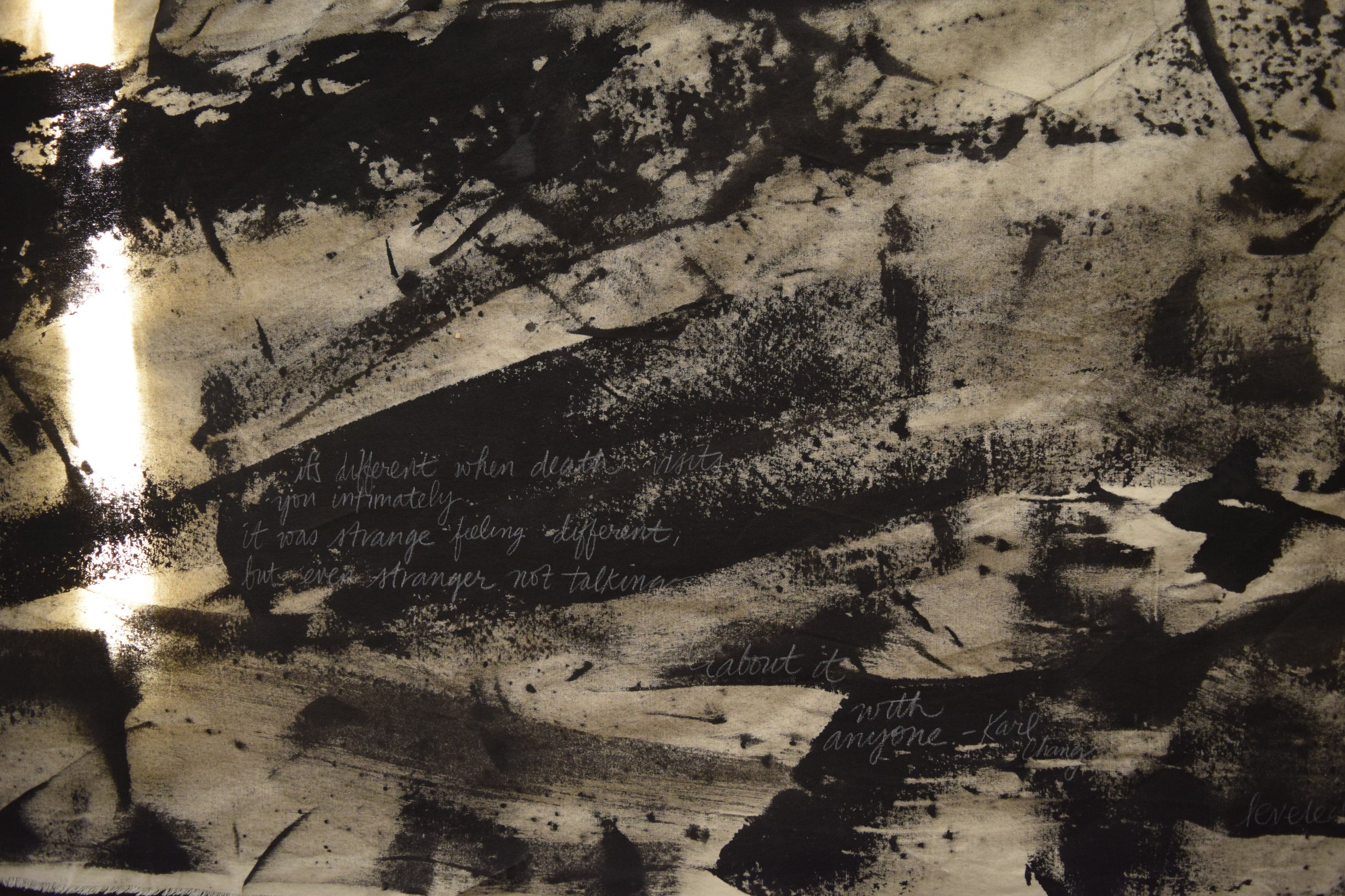
Photos by Ann Shi
